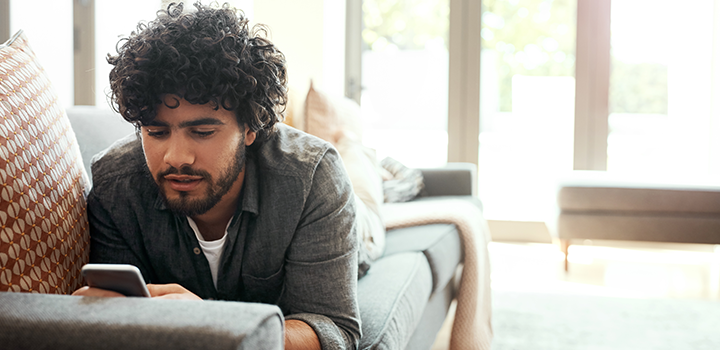How to cope with quarantine life after exposure to COVID-19

If you've been exposed to COVID-19, you must quarantine for at least 10 days even if you do not have symptoms. Vitality wellness clinician, Dr Seranne Motilal, provides more information on how to go about quarantine.
"In the context of COVID-19, the NICD defines close contact as face-to-face contact within a metre or in a closed space for more than 15 minutes. The contact would have been with a person who was still infectious, or from two days before to 10 days after their symptoms began", says Dr Motilal.
You will then need to quarantine, which means:
- Stay at home. You cannot go to the shops, work, school or any public area.
- Do not use any public transport or travel.
- Opt for virtual consults for any routine medical check-ups.
- If possible, ask unexposed friends or family to purchase groceries and other items for you, or order online. When goods are delivered, ask for them to be left at the door. Try not to interact in person with others at all.
- Try at home exercises if you have the energy, but don't push yourself.
- Do not entertain visitors. Keep in touch virtually.
"For those who live with you, try designating one room and bathroom for yourself. Try to spend most of your time in your designated room even when you eat," says Dr Motilal. "If this not possible, try to maintain at least a two-meter distance from everyone at home at all times."
"If you have to share a bathroom or kitchen, make sure not to share items and clean the kitchen and bathroom after every use," she says. "As far as possible, avoid contact with children and pets. Remember, viral loading means that the more exposure to the virus you have, the sicker you can become. Even if you and a family member are exposed to COVID-19, you need to quarantine from each other. This also applies to infected people," says Dr Motilal.
Tips to manage quarantine
"The current lockdown allows deliveries and convenience options," says Dr Motilal. This can help with daily logistics, as well as the mental load of being at home.
Some ways to manage the time in quarantine include:
- Order food and supplies online or ask friends or family to deliver to your doorstep. Limit contact with other people as much as possible.
- Rest and relax when you are not working: make time for reading, watching TV, meditation, and virtual connection with others.
- Keep a symptom diary to monitor and identify how you feel physically. Also, include how you feel mentally. Your fitness device may allow for mood tracking.
- If feeling stressed or overwhelmed, reach out for help. Online counselling is much easier to access right now.
What happens if you develop symptoms
"You do not need to test for COVID-19 if no symptoms develop, but if you are unsure and show symptoms, you will need to test for COVID-19," says Dr Motilal.
She adds: "Symptoms that may develop include: fever, cough, shortness of breath, sore throat, muscle aches, or other flu-like symptoms, usually from two to 10 days after your close contact with a person with COVID-19. If any of these symptoms develop, immediately contact your healthcare provider for further advice."
Source: NICD


